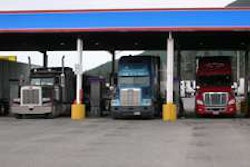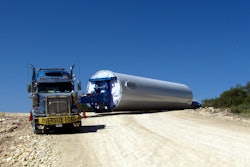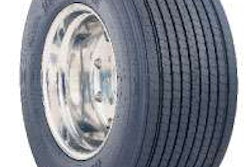Legislation that would change federal law to allow ports new authority over trucking is quickly gaining support.
As of Aug. 2, the Clean Ports Act had 65-co-sponsors, following the bill’s July 29 introduction by U.S. Rep. Jerrold Nadler and referral to the transportation and infrastructure committee. The co-sponsors heavily represent New York and California, as well as several other states.
Other bill supporters include numerous labor and environmental groups and several city and port governments.
Current federal regulations bar states and their political subdivisions from regulating trucking price, route or service. U.S. code allows these entities to enact local rules over specific areas affecting trucking, such as hazardous cargo, but prevents these authorities from instituting other regulations affecting the areas named.
A U.S. court issued a temporary injunction against the Port of Los Angeles from enforcing some of its Clean Truck Program components because of an on-going American Trucking Associations lawsuit. That court order currently prevents the Los Angeles port from enforcing all of its program requirements, including that truckers regularly serving the port be carrier employees.

Program supporters have said they can only achieve the plan’s environmental goals by barring owner-operators from regular port service. In the case’s court filings, the ATA accepted the port’s environmental standards, but disagreed with the employee requirement.
Ports on all U.S. coasts have said they want to follow the Los Angeles model, which has drawn several port city mayors’ backing.
The bill, H.R. 5967, would permit ports new authority over trucking if the requirements
“are reasonably related to” reducing pollution or congestion, improving highway safety, or “efficient utilization of port facilities,”… if such requirements are in accordance with any other applicable federal law or regulation.”
As to the applicability of the U.S. Clean Air Act, the legislation clarifies that the new language does not limit authority of states or their political subdivisions.
Nadler said his bill’s passage would allow Los Angeles port-type plans to be implemented in ports, including the employee requirement. Allowing owner-operators more than occasional port service “threatens the efficacy of the entire clean truck program,” because port carriers should be charged with the duties of properly maintaining and upgrading trucks, according to a statement released by his office. The bill affects water ports only and does not mention rail ports.
Port of Long Beach replicated Los Angeles’ program and emissions standard without the employee rule. In January, Long Beach announced it had met its clean air goals nearly two years earlier than planned.
Oakland is among the ports wanting the Los Angeles program and recently commissioned the firm Beacon Economics for an impact analysis of implementing this plan. The researchers wrote “the majority of truckers serving the port are independent owner-operators who do not wish to become employee drivers.” They further stated “independent owner-operators and employee driver earnings are comparable, and significantly higher than non-drayage truck driver earnings.”










